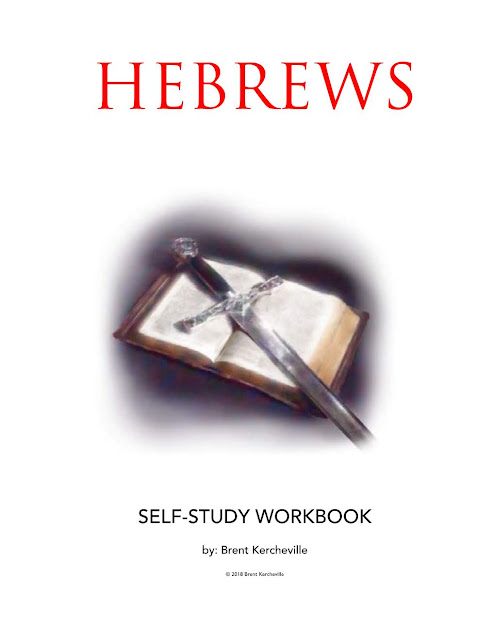Hebrews Chapter Eight Verses 7-13
HEBREWS CHAPTER EIGHT VS 7-13 (USING KING JAMES STUDY
TEXT, STUDY BOOK WILL REFERENCE A DIFFERENT VERSION FOR READING)
Heb 8:7 For if that first covenant
had been faultless, then should no place have been sought for the second.
Heb 8:8 For finding fault with them, he saith, Behold, the days come,
saith the Lord, when I will make a new covenant with the house of Israel and
with the house of Judah:
Heb 8:9 Not according to the covenant that I made with their fathers in
the day when I took them by the hand to lead them out of the land of Egypt;
because they continued not in my covenant, and I regarded them not, saith the
Lord.
Heb 8:10 For this is the
covenant that I will make with the house of Israel after those days, saith the
Lord; I will put my laws into their mind, and write them in their hearts: and I
will be to them a God, and they shall be to me a people:
Heb 8:11 And they shall not teach every man his neighbour, and every man
his brother, saying, Know the Lord: for all shall know me, from the least to
the greatest.
Heb 8:12 For I will be merciful to their unrighteousness, and their sins
and their iniquities will I remember no more.
Heb 8:13 In that he saith, A new covenant,
he hath made the first old. Now that which decayeth and waxeth old is ready to vanish away.
Main Point: Now that which decayeth and waxeth old is ready to vanish away.
He is (and has been) dismantling the old law, and any
reason to continue to rely on it.
4.
Notice
in verse 7 that the implication is that the first covenant was faulty, and yet
in verse 8 the statement is that the people were at fault. What is the first
covenant? Explain where the fault lies: Verse nine explains the
dispensation period as “I made with their fathers in the day when I took them
by the hand to lead them out of the land of Egypt”. The “first covenant” statement is exclusive
in context to the Mosaical period….his dealings with Abraham’s descendants.
Just to be clear the agreement God had with Israel, established during the
wanderings are better defined in Deuteronomy…not Leviticus. Leviticus was sundry
laws and sacrifice-for-sin stuff (all important). Deuteronomy was the reminder
of what it meant to be called “Gods chosen”
and the promises associated with keeping Jehovah as their God. See Deut
6:1-6. This was an extension of His promises to Abraham Gen 15:5 – ultimately fulfilled
in Jesus the Christ.
5.
What
is meant by, “I will put My laws in their mind and write them on their hearts”?
Oh my what an abstract thought. To think that laws will be made not on
stone (the shadow), but will effectually move mankind toward God. The Levitical
law was not designed to do this. THE COVENANT WAS, and it was established
through deliverance (salvation) from Egypt …another foreshadow. The PERFECTED deliverance
would come through the one thing nobody saw coming…GOD DYING for His creation…THAT
is HOW He writes it on hearts and minds. Somebody get me a pulpit!
6.
What
is meant by, “None of them shall teach his neighbor, and none his brother
saying ‘Know the Lord,’ for all shall know Me? The context are those who
have God in mind and heart. Not sure what else to say about this…except that it
has also happened in the general context. Does not most if not all the world
know that there is a Christian religion? Why would we see oppression and suppression
of the word by governments and other violent religions if this has not been
fulfilled? (Not saying everyone knows Him as they should).
7.
Explain,
“Now what is becoming obsolete and growing old is ready to vanish away.” This
is the writer putting the hammer down on the thinking that the Old Law was
still a viable/preferred system/covenant. His language must have been upsetting
to those who wanted to stay “safe” with the old traditions. Remember, there may
be a few different sources of persecution for the believing Israelite. Their
mettle is being tested.
Additional:
8) Fault:
3201 - Middle voice of an apparently
primary verb; to blame: - find fault.
…with them: 846 -From the particle αὖ au (perhaps akin to the base of G109
through the idea of a baffling wind; backward);
the reflexive pronoun self, used (alone or in the compound
of G1438) of the third person, and (with the
proper personal pronoun) of the other persons.
What
is the significance in verse 8 of using BOTH names Israel and Judah?
What
does God mean in verse nine “I regarded them not”? How serious is that?
(Contrast the end of verse 10)

Comments
Post a Comment